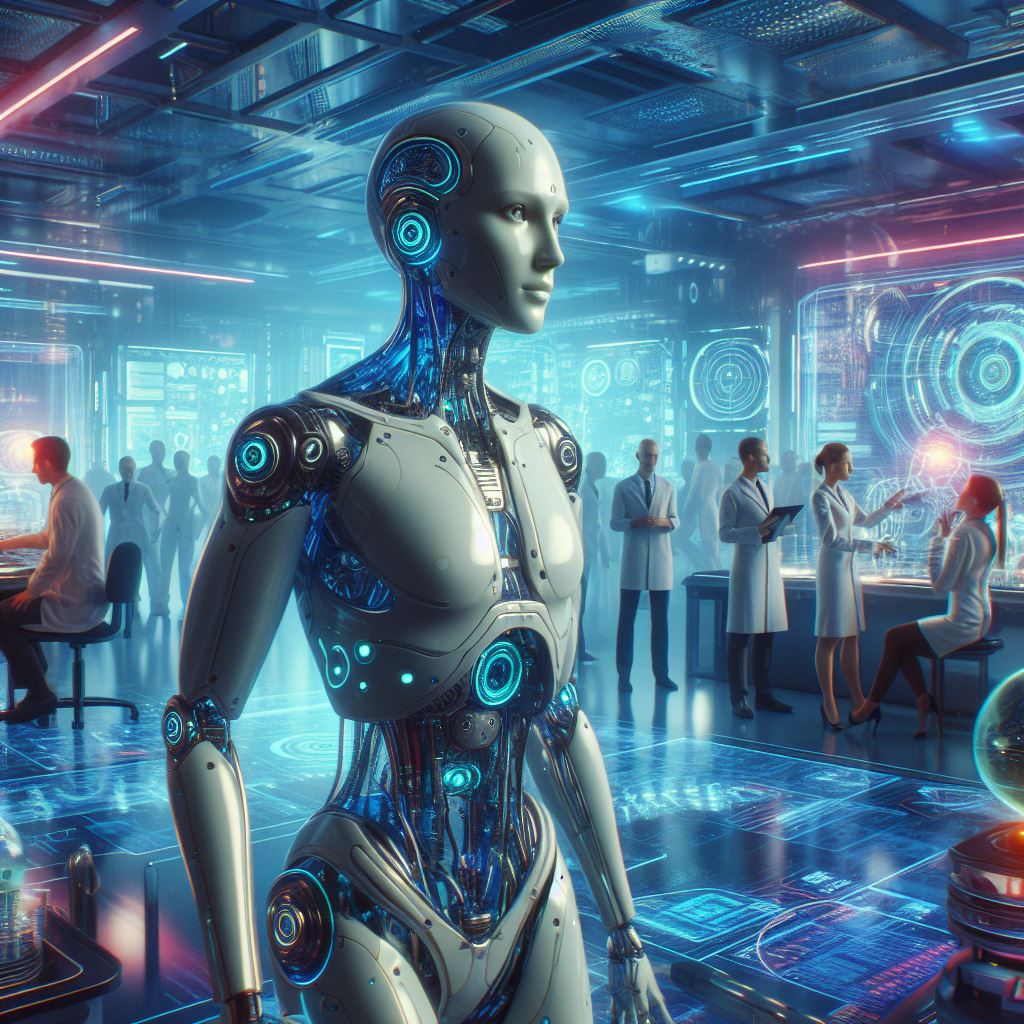AI Technology do in the future
Introduction
Artificial Intelligence (AI) is no longer a figment of science fiction; it’s an integral part of our daily lives. From Siri and Alexa to sophisticated predictive algorithms, AI’s rapid evolution is nothing short of a technological revolution. But as we stand on the cusp of further advancements, what future possibilities does AI hold?
Historical Context
To predict the future, one must understand the past. AI’s journey from simple machine learning algorithms to complex neural networks reflects a trajectory of growth that’s far from plateauing.
Present Capabilities
Currently, AI can drive cars, predict consumer behavior, and even outplay humans in complex games. These capabilities are just the tip of the iceberg, hinting at a future filled with untapped potential.
Healthcare Revolution
In healthcare, AI’s ability to analyze vast datasets can lead to earlier diagnoses and personalized treatment plans, revolutionizing patient care.
Environmental Impact
AI also promises a greener future. Through predictive analysis and automation, it’s helping manage resources more efficiently and combat climate change.
Automation in Industry
From manufacturing to customer service, AI is streamlining processes and creating efficiencies that were once unimaginable.
Future Predictions
While current applications are impressive, the future of AI is poised for even greater breakthroughs.
Deep Learning
As deep learning becomes more sophisticated, AI will become increasingly adept at tasks that require complex decision-making and emotional intelligence.
Quantum Computing
The advent of quantum computing could exponentially increase AI’s processing power, opening up new frontiers in research and application.
Personal Assistants
Imagine AI personal assistants that don’t just understand your requests but anticipate your needs and emotions, becoming an integral part of daily life.
Smart Cities
AI is set to play a pivotal role in creating smart cities, where everything from traffic to public services is optimized for efficiency and sustainability.
Intergalactic Exploration
Beyond our planet, AI could lead the charge in exploring and colonizing new worlds, making intergalactic exploration a reality.
Ethical Considerations
With great power comes great responsibility. The future of AI is riddled with ethical dilemmas that we must navigate carefully.
Job Displacement
As AI takes over more tasks, the potential for job displacement is real. How society adapts to these changes will be a significant challenge.
Privacy Concerns
Advanced AI could lead to unprecedented levels of surveillance and data collection. Balancing innovation with the right to privacy will be critical.
Decision Making
As we delegate more decisions to AI, we must consider the implications of machines making choices that affect human lives.
FAQ
- What are the potential risks of advanced AI?
- How might AI change the job market in the next 20 years?
- Can AI help solve major world issues like climate change?
- What role will AI have in future healthcare?
- How can we ensure ethical development of AI?
FAQ
- What are the potential risks of advanced AI? The potential risks of advanced AI include loss of jobs due to automation, privacy concerns with increased surveillance and data collection, and the existential threat posed if AI technology is not properly controlled or regulated. There’s also the ethical dilemma of decision-making being handed over to machines, which might not fully comprehend human values and ethics.
- How might AI change the job market in the next 20 years? In the next 20 years, AI is expected to both displace and create jobs. Routine and repetitive tasks are likely to be automated, but this technology will also create demand for new types of jobs, particularly those focusing on AI development, maintenance, and ethical management. The key will be adaptability and continuous learning as the job market evolves.
- Can AI help solve major world issues like climate change? AI can play a significant role in combating climate change by optimizing energy use, predicting weather patterns more accurately, and aiding in the design of energy-efficient infrastructure. It can also help in monitoring and enforcing environmental regulations and in the development of renewable energy sources.
- What role will AI have in future healthcare? AI’s future role in healthcare is incredibly promising. It’s set to revolutionize diagnostics, treatment personalization, patient care, and medical research. AI could help in early detection of diseases, suggest personalized treatment plans, assist in surgery, and even provide companionship and care for the elderly or those with chronic illnesses.
- How can we ensure ethical development of AI? Ensuring ethical development of AI involves several strategies: establishing clear guidelines and regulations, fostering transparency in AI algorithms and data usage, involving diverse stakeholders in the development process, and continuously monitoring and evaluating AI systems for unintended consequences. Education and awareness about AI ethics are also crucial for both developers and the general public.
Conclusion
As we stand on the brink of what’s often termed the Fourth Industrial Revolution, the potential of AI is both exhilarating and daunting. It promises a future of convenience, efficiency, and enhanced capabilities but also poses significant ethical, social, and economic challenges. Balancing innovation with caution will be key. We must steer this powerful technology with a conscientious hand, ensuring it serves humanity positively and mitigates the risks associated with its advancement. As we navigate this complex landscape, the choices we make today will shape the AI of tomorrow and, by extension, the future of our world.
Remember, the future of AI is not just about what it can do but also about what we choose to do with it. The path we take is ours to decide




